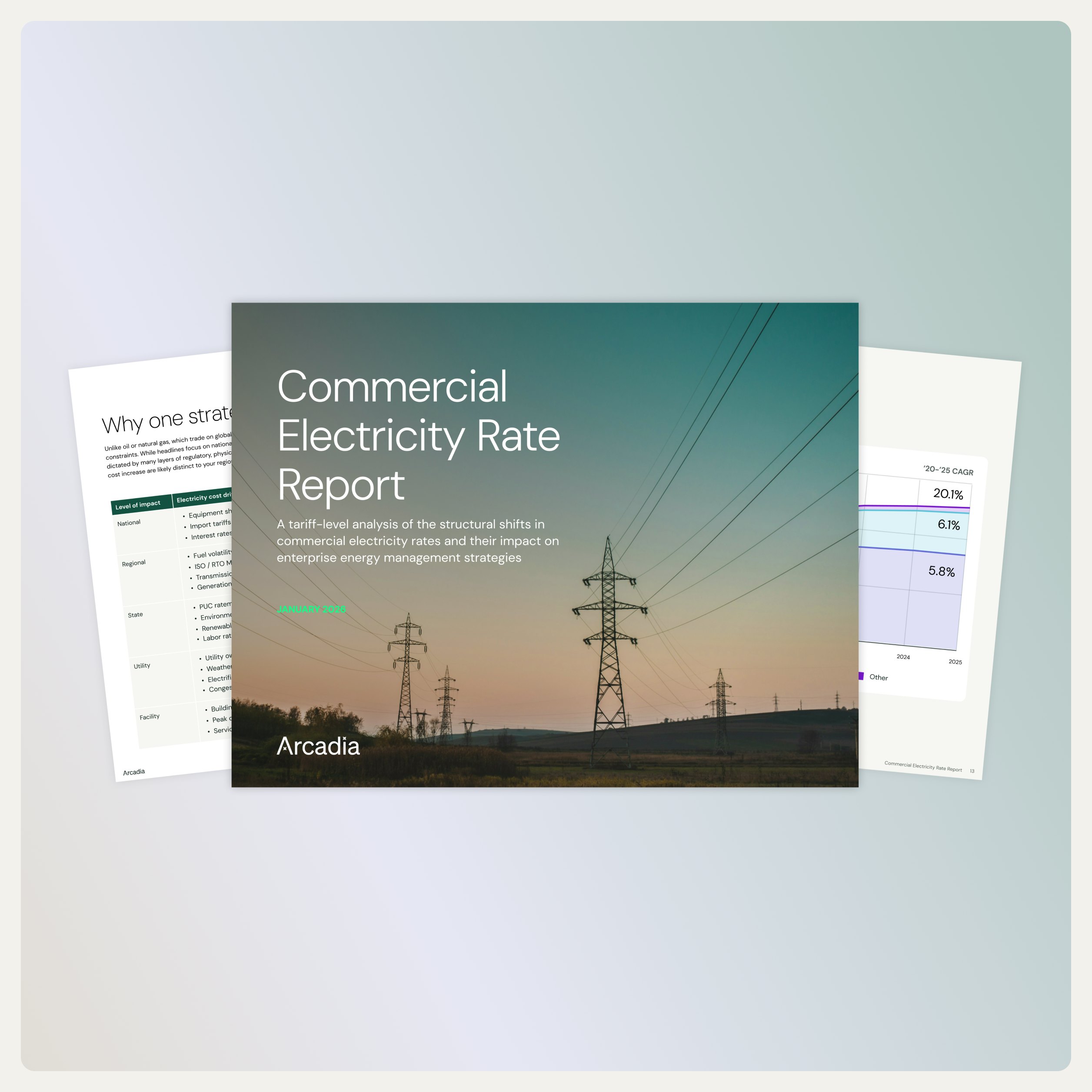Four climate truths everyone should know

At Arcadia, we know that the science is real — humans are causing climate change, and we need to be the ones to do something about it. And we try to make that as easy as possible, because we believe that people want to take action on climate. In fact, we’re founded on the belief that people will choose clean energy every time if it’s easy and accessible.
Rewiring America estimates that transitioning to clean energy by 2035 will create 25 million jobs in manufacturing, installation, and maintenance.
But we’re fighting a battle against all the climate disinformation swirling around in our political and social media atmosphere. That smog of disinformation is a huge barrier that’s keeping people from taking action. In a survey we conducted, 33% of respondents said that they don’t believe their individual actions help mitigate climate change.
That’s just not true.
We’re here to clear the air about this and other climate “fake news.” Below, we shine some light on four climate facts that we want everyone to know about.
Climate fact #1: Renewable energy is less expensive than fossil fuels
Renewable energy from wind, solar, and hydropower is the cheapest it’s ever been. In fact, energy from renewable sources now costs less than energy from fossil fuels (oil, natural gas, coal). The International Energy Agency declared solar energy the “cheapest electricity in history” in its World Energy Outlook 2020. Globally, the average cost per kWh for renewable energy stacks up favorably:
- Hydroelectric power: $0.05 / kWh
- Onshore wind power: $0.10 / kWh
- Solar power: $0.10 / kWh
- Fossil fuels: $0.05-0.15 / kWh
Prices for renewable energy have fallen notably mainly because we’ve gotten better at constructing renewable energy projects. The technology is better, and developers have gotten more practiced at building projects and can do it more efficiently. The cost of new utility-scale solar projects has fallen by 82% since 2010. And the power sources themselves — wind, the sun, water — are free and sustainable.
The truth is that renewable energy has always been the better option for the planet. And as it becomes the better option economically, we’re going to continue to move away from fossil fuels and the greenhouse gases they release into the air.
Climate fact #2: Community solar makes solar energy affordable for everyone
It’s true that solar power used to have an accessibility problem, and that reputation has stuck around. And rooftop solar can still be cost-prohibitive. Even with tax credits, the average initial investment for rooftop panels runs between $11K and $15K. You can get on a financing plan, but you’ll need good credit.
That’s why we’re so excited about community solar. Community solar projects are local solar arrays that you, your neighbors, and area businesses can all subscribe to, rather than installing your own solar panels. When you join, you’re subscribing to a share of that project based on how much energy you use in a typical month. The project generates electricity, which your utility company purchases because, again, solar power is “the cheapest electricity in history.” You get a portion of the profits from your share of the project as a credit on your monthly electric bill, while the energy from your project powers area homes and businesses.
Community solar makes solar power available to renters and homeowners alike, and it lets you have a direct impact on your local power grid. By putting more solar energy into the grid, you’re decreasing the demand for energy generated from fossil fuels. But that’s not the only benefit. Farmers and local business owners can lease their space to solar developers, bringing in extra revenue. Community solar projects also create jobs, lead to more local investment, and lower local taxes.
The best part? Joining a community solar project through Arcadia is completely free.
Climate fact #3: Clean energy will create jobs and keep the economy strong
Going clean is good for the economy. That’s it; that’s the fact. Electrifying all of our energy and transitioning to clean energy will create jobs. Lots of them. Rewiring America estimates that transitioning to clean energy by 2035 will create 25 million jobs in manufacturing, installation, and maintenance. And most of those jobs will stay in the United States. You need local employees to install and maintain solar panels, after all. All those jobs will have a multiplying effect as workers put their money back into their local economies.
Jobs are obviously a great benefit. But something we don’t hear a lot about is the economic cost of not transitioning to clean energy. And that cost is astronomical. If we don’t act, climate change will cost the US economy $224 billion per year by 2090. About three-quarters of that cost will be from health impacts, mostly due to extreme heat. But we’ll also be paying for lost labor hours due to climate disasters (910 million per year, worth about $75 billion) and infrastructure and property damage. And the damage won’t just be to the economy. People will die.
So really, we can’t afford not to switch to clean energy. If we don’t, there won’t be an economy to save.
Climate fact #4: You have control over your power
You always have power over your power. You have the power at home to decide where your energy comes from, whether it’s from fossil fuels or from renewable sources. When you power your home with 100% renewable energy through Arcadia, you’re helping clean up your state’s energy grid by decreasing the demand for fossil fuels. Your home energy use is probably your biggest impact on the environment, and you can choose to make it renewable. That’s pretty powerful.
You also have power at the polls to decide who gets to make energy policy. Your elected representatives help decide what you pay for electricity, what your city and state’s clean energy goals are, and whether we’ll take action to mitigate climate change or not. One of the most powerful things you can do to fight climate change is to elect representatives who will make that fight a priority.
You have a voice. The planet is counting on you using it.
Join our newsletter
Stay updated with our latest insights, industry trends, and expert tips delivered straight to your inbox


